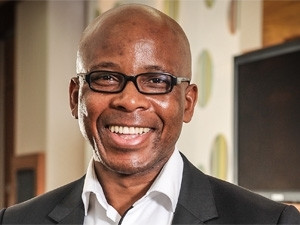
Microsoft SA has launched another nationwide search for small black-owned software product development firms to join its enterprise development programme.
The company has kicked off a public request for proposal (RFP) process for new firms looking to become part of its multimillion-rand equity equivalent programme (EEP), which has already seen five small companies - two of which are female-owned - grow "dramatically" since the launch of the programme, in March 2011. Entries close on 11 October.
The RFP is open to small, black-owned software companies across SA, with a maximum of 50 employees and a maximum turnover of R15 million a year. Microsoft initially started with four companies and then added another two before one dropped out.
The focus areas for the RFP will be in the education, healthcare, consumer, safety and security, mobility, cloud computing, big data and social business sectors, where MD Mteto Nyati believes technology can make a clear difference to current levels of service delivery.
Nyati said the programme is not aimed at providing start-up capital, but rather at turbo-charging the growth of existing companies that have potential. In the process, it aims to address several of the key challenges facing the country: creating jobs, developing small enterprises, building the local software economy and developing scarce technology skills.
"We're more than two years into the programme, and our current five companies have already made huge strides in developing new business models, creating jobs, and reaching out to new markets," said Nyati.
"Our investment to date has focused on fuelling innovation in high-growth areas that are currently underserved, including safety and security, healthcare, consumer, mobility and cloud computing."
Growth plans
One of the original beneficiaries of the programme, Home-Grown Business Integrations, moved from KwaZulu-Natal to Johannesburg to take advantage of new business opportunities generated by its partnership.
The company's Lehalima Utility Management System has helped provide convenient electricity access to houses across the country, and CEO Thaisi Shale's vision is to be the leading utility management service provider in Africa by 2018. "And we're not stopping there. We are ready to do even more amazing things and have already started the journey to expand our offerings to the global stage," said Shale.
iSolv Technologies, which creates solutions around public key infrastructure (PKI), encryption and secure communication, says its partnership with Microsoft has seen it grow. "To date, we've been able to strengthen our internal infrastructure, increase our developer headcount and invest in a number of key assets," said iSolv CEO Jayesh Nana.
Maxxor was already established in the mobile gaming market when it joined the programme in 2011, but director Raj Moodaley says the company has since moved into the field of B2B mobile sales apps and B2C mobile commerce solutions.
"We've just launched our flagship product into the Microsoft Windows App Store, and we're setting our sights on new markets such as the US, Canada, Australia and New Zealand," said Moodaley.
Share